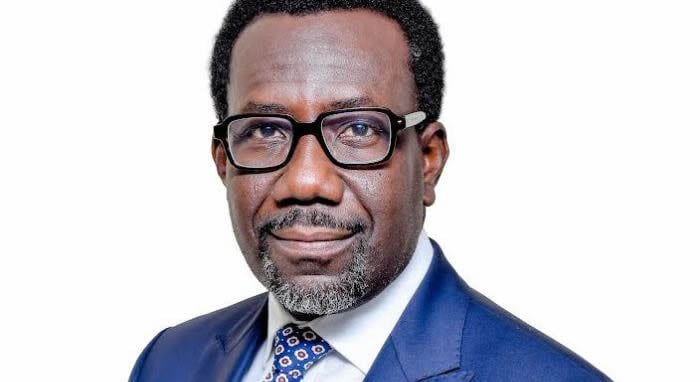Omosehin Pushes for Wider Agricultural Insurance Coverage to Safeguard Food Security

The Commissioner for Insurance and Chief Executive Officer of the National Insurance Commission (NAICOM), Mr. Olusegun Omosehin, has urged stronger adoption of agricultural insurance across Nigeria, describing it as a vital safeguard for farmers and the nation’s food security.
Omosehin made the call during the 2025 Stakeholders’ Retreat of the House Committee on Insurance and Actuarial Matters held in Maiduguri, Borno State.
The retreat, themed “Navigating the New Era of Insurance Regulation: Understanding NIIRA 2025,” focused on aligning legislative oversight with reforms under the new Nigerian Insurance Industry Reform Act.
The NAICOM boss highlighted the significant role agricultural insurance plays in protecting rural livelihoods against climate shocks, pest outbreaks, and market fluctuations.
“Agriculture remains the backbone of Nigeria’s rural economy and a vital pillar of food security. Yet, it is also one of the most vulnerable sectors, exposed to climate shocks, pest outbreaks, and market volatility. Insurance offers a powerful tool to de-risk agriculture and empower our farmers,” Omosehin said.
He disclosed that more than 1.47 million smallholder farmers have been covered under NIRSAL’s agricultural insurance scheme, with a target of 3.6 million by 2026.
Between April and June 2025, over 250,000 farmers in eight states were insured under federal initiatives.
Omosehin cited recent data showing that insured rice farmers in North Central Nigeria recorded 11 per cent higher yields than uninsured farmers—averaging 20 bags per hectare compared to 18 bags.
He also pointed to cases where insured farmers received compensation after devastating losses.
Kaduna ginger farmers, who lost over 90 per cent of their crops, were compensated under the NAGS-AP scheme, while livestock and encroachment insurance programmes in Sokoto, Bauchi, Adamawa, and Plateau States have helped reduce farmer-herder conflicts.
Under the Nigerian Insurance Industry Reform Act 2025, Omosehin said NAICOM plans to deepen coverage by expanding index-based and parametric insurance products for crops and livestock.
The Commission also intends to promote bundled insurance tied to agricultural inputs and credit, partner with technology firms for digital delivery, and work with state governments to integrate insurance into agricultural extension services.
The Commissioner stressed that agricultural insurance is essential not just for farmers but for the broader economy.
“Nigeria loses billions annually to floods, drought, and other climate shocks. Yet only a few of our farmers have insurance. With your support in budget appropriations and subsidies, we can de-risk the agriculture sector, protect livelihoods, and strengthen food security,” he said.
He added that insurance reduces the fiscal burden on government during disasters, allowing funds to be redirected toward other national priorities.
Omosehin further advocated the insurance of public assets, noting that billions spent on roads, housing, and schools could be lost without coverage.
“With enforcement, the government’s emergency expenditures can drop by up to 40 per cent, freeing resources for education and health,” he explained.
“Insurance is also a source of long-term capital. With stronger premiums, insurers can fund infrastructure bonds, housing, and industry.”
He reaffirmed NAICOM’s commitment to making agricultural insurance a central pillar of Nigeria’s development agenda under NIIRA 2025, saying the reform will embed risk protection into food security, climate resilience, and inclusive economic growth.









